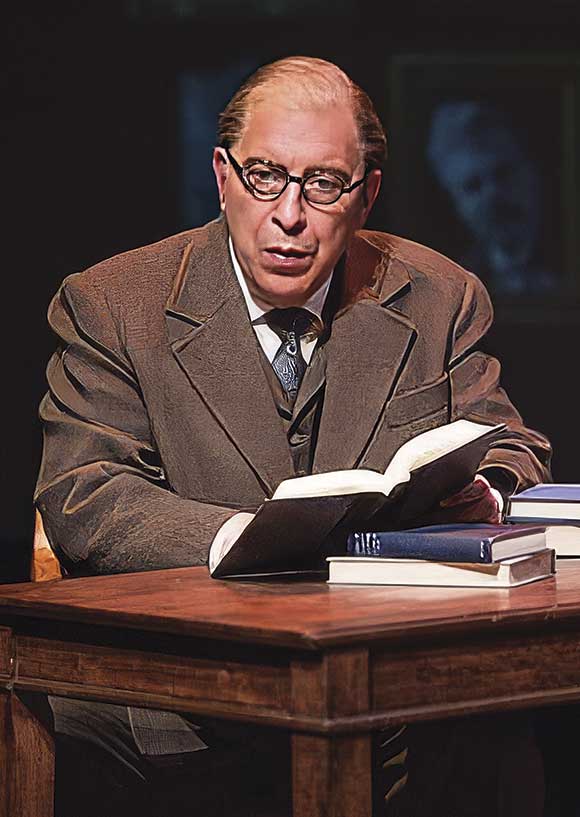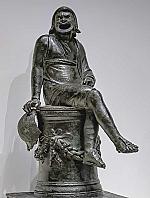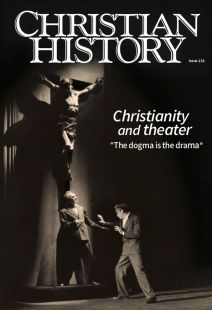The most important story

[ABOVE: Max McLean as C. S. Lewis in The Most Reluctant Convert—Fellowship for Performing Arts / Christian History Institute]
Max McLean, stage actor, writer, producer, and artistic director and founder of Fellowship for Performing Arts based in New York City, spoke to CH about his vocation in the theater and his calling as a Christian.
Christian History: Tell us about your work.
Max McLean: Fellowship for the Performing Arts (FPA) produces theater and film from a Christian worldview meant to engage an intellectually diverse audience. Among the plays we have produced are our current touring work, C. S. Lewis On Stage: Further Up & Further In, as well as The Screwtape Letters, The Great Divorce, The Most Reluctant Convert (both stage and film), Martin Luther on Trial, a modern adaptation of Paradise Lost, the first New York revival of Shadowlands, as well as a well-received revival of A Man for All Seasons. Over the course of our history, our plays have been seen by well over a million people.
CH: How long have you been involved in the performing arts? What drew you to the stage in the first place?
MM: I got into theater during college to get over my fear of being in front of people. That was in the mid-70s, so I’ve been doing this close to 50 years. FPA was incorporated in 1992.
CH: How was theater influential in your faith journey? When did you feel a desire to use your gifts and talents to serve the Lord through performance?
MM: I started in the theater as an actor; however, not long after I graduated from college, I had encounters with several Christians that led me to a born-again experience with Jesus Christ after reading John’s Gospel in one sitting. I knew this was the most important story in the world. I also realized theater was a powerful medium to tell stories. So, I was immediately drawn to find a way to integrate the two.
CH: How has portraying C. S. Lewis on stage affected your faith?
MM: C. S. Lewis was one of the first authors I encountered after my conversion. I was most affected by The Screwtape Letters because it gave me a very clear picture of spiritual warfare and how it works in our day-to-day life. About 20 years ago, we decided to do a theatrical adaptation of the book. To make it clear on stage, I knew I had to dig really deep to make sure Lewis’s ideas came through. That was a very satisfying experience. I also realized that you never get to the bottom of Lewis. There’s always more to explore, and that led to other productions such as The Great Divorce, The Most Reluctant Convert and, most recently, Further Up & Further In.
CH: Was there ever a time when you experienced internal conflict over whether or not you should perform as a Christian? If so, how did you resolve that conflict?
MM: In the early years of my career, I did have internal conflict. The more I grew in my faith, the less satisfying I found the roles I was being offered. I realized that an actor is sort of a hired hand. An actor’s job is to brilliantly communicate other people’s ideas, whether he agrees with them or not. That caused conflict. Jesus said you cannot serve two masters. That’s when I turned my attention to producing stories from a Christian worldview. CH
By Max McLean and the editors
[Christian History originally published this article in Christian History Issue #152 in 2024]
Next articles
Recommended resources: Christianity and theater
Read more about how Christians have participated in, created, and critiqued theater in these resources recommended by our authors and the CH team.
The editors and contributors






